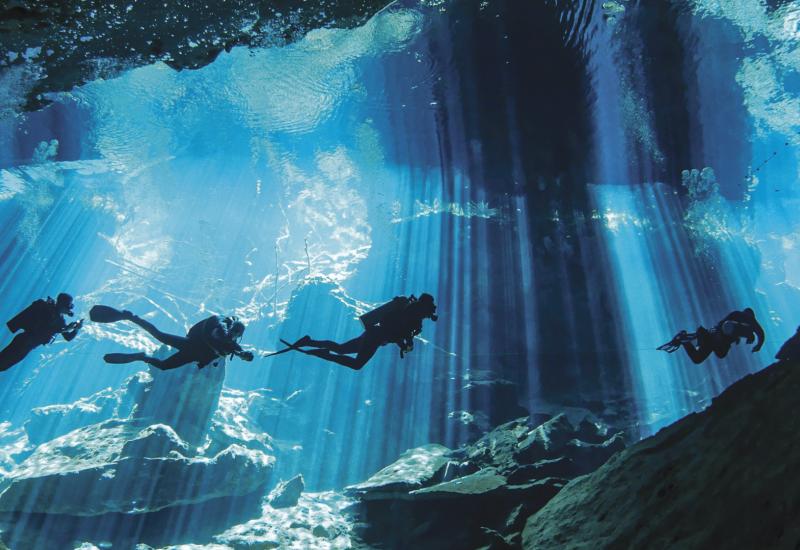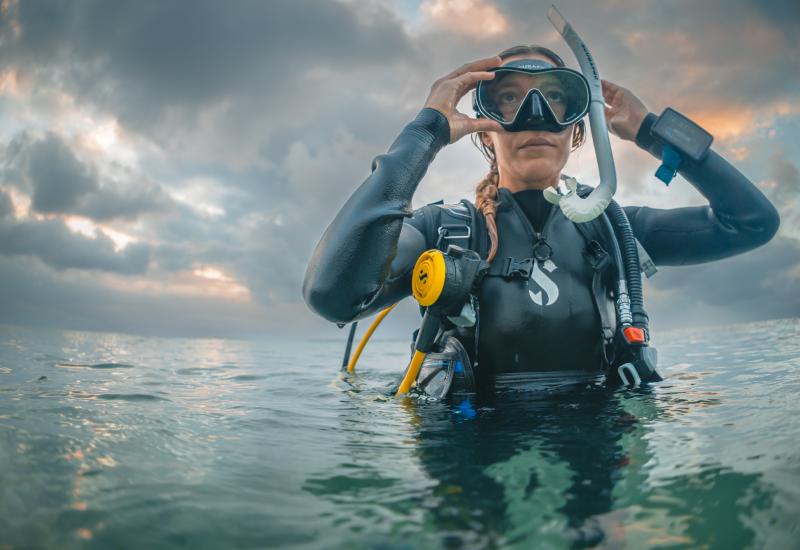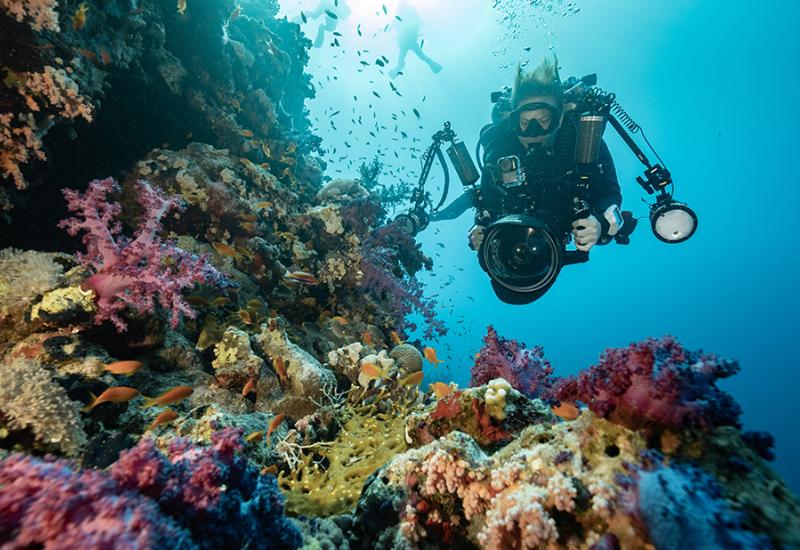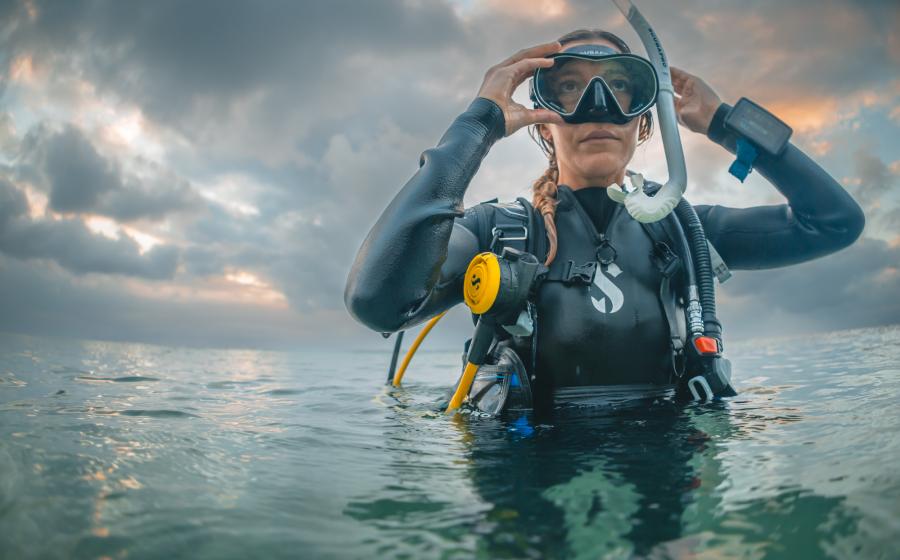Three Lessons from Interviewing Shark Advocates Around the World
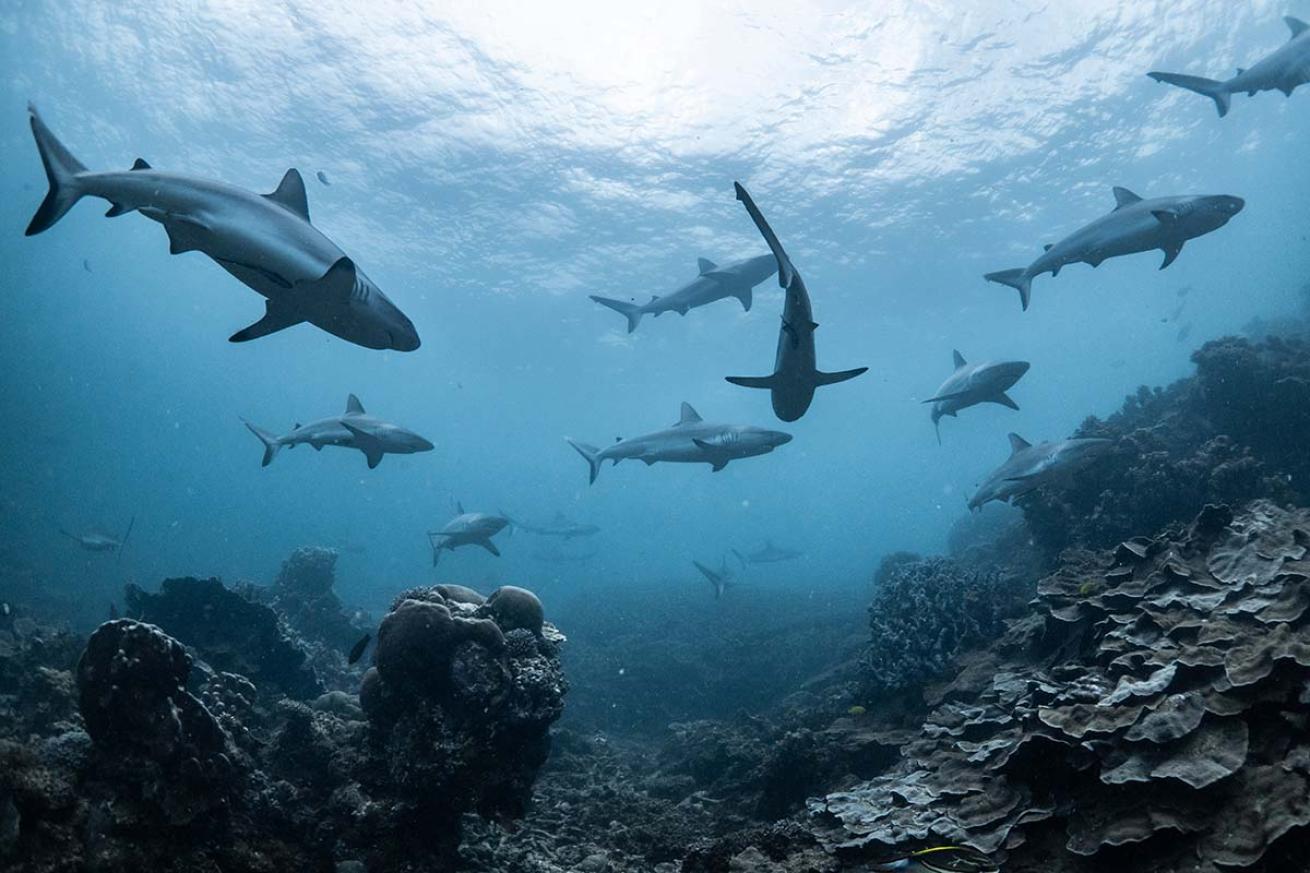
Shutterstock.com/Lewis BurnettGrey sharks school in Australia, a popular research hub.
I am a conservation biologist whose team just surveyed professional shark conservation advocates and educators from all over the English-speaking world (not counting scientists who work for environmental non-profit groups). We asked them where they get their scientific facts and evidence from, what they think the most effective conservation policies are, and their thoughts on what scientists can do better to help save sharks. Our findings were recently published in the journal Scientific Reports, but here are the three most important things we learned.
First, the vast majority of environmental non-profit shark advocates believe that science is, in general, very important in terms of informing conservation advocacy. Without scientists studying these threats, few people would know about these environmental problems, how bad they are, and why it’s important to solve them. Several conservationists spoke of the role of science in terms of shining a light on problems that need attention from the environmental community, pointing them in the right direction and helping them to prioritize limited resources. Many conservationists reported that they have a great working relationship with scientists, with the two groups working together on the same types of policies with the same goals to help save sharks. As a conservation biologist who believes that science should be used to help endangered species and that the most effective environmental advocacy is informed by science, this was heartening information!
Second, as I’ve repeatedly written in this very column, the shark conservation world has a big issue with people who are well-intentioned and ill-informed. Our study showed that, while many conservationists keep up with the latest scientific findings and evidence, regularly speaking with scientific experts, a small subset never reads scientific evidence or speaks with scientists. Perhaps unsurprisingly, this second group is more likely say things that are untrue and advocate for the policies least supported (or even opposed) by scientific experts. Among conservationists who regularly read scientific evidence, for example, 85 percent of them promote improving shark fishery sustainability instead of banning all shark fishing (which 90 percent of scientists support.) Almost 80 percent of conservationists overall support this as well, but just over half of conservationists who rarely or never read the literature support promoting more sustainable fisheries.
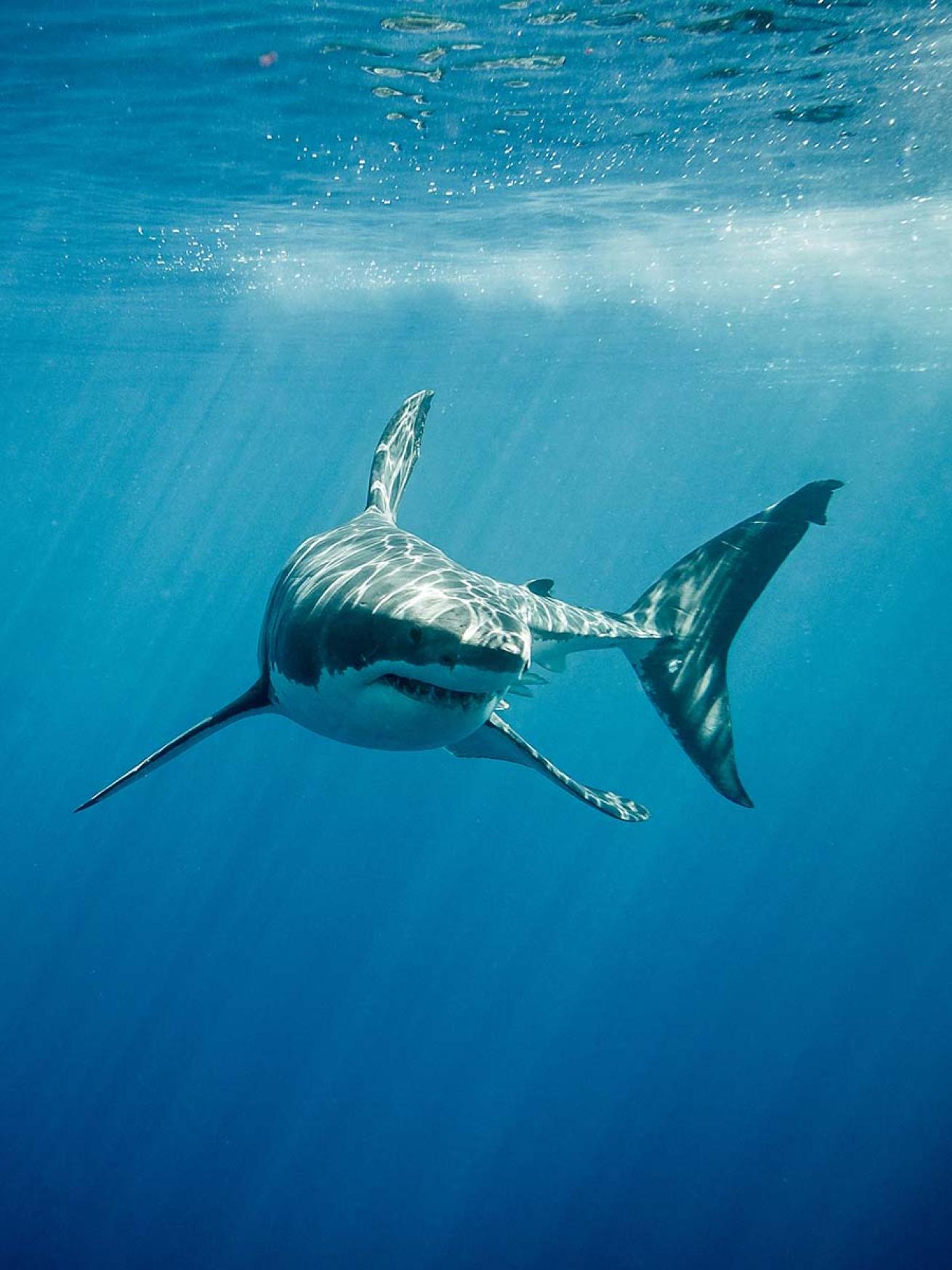
Shutterstock.com/Ramon CarreteroThe great white shark is subject of copious research while many species in much worse conservation trouble receive substantially less attention.
As an even starker example, among conservationists who believe that sustainable fisheries for sharks exist, only 22 percent support banning the shark fin trade, (a policy about which I’m quite skeptical.) Among those who believe that sustainable shark fisheries do not exist, 100 percent support a shark fin trade ban. While some policy preferences have to do with personal morality and values and opinion, it’s a fact that sustainable shark fisheries exist. There are certainly people who are knowledgeable and well-informed who support these policies, including of colleagues with whom I agree with on many other issues, but the trends here are notable—you are more likely to support these policies if you review scientific evidence, and less likely to support them if you are unaware of that research. While scientific evidence isn’t the only thing that does (or should) shape policy, it is a problem when people who claim to speak for the science say things that are not true.
Third, the front-line conservationists who work every day to save threatened species have some concerns about scientific research’s current focus. They point out that some species (e.g., great white sharks) in some places (e.g., the USA and Australia), are already very well studied, while some Critically Endangered species in other places, have barely been studied at all. Advocates say such data would support conservation work. This kind of gap highlights that, while many scientists say they want their research to be helpful for conservation, some research could be more helpful if scientists spoke with conservationists or policymakers before selecting their research. Conservationists know what data is missing and what data would most help them, and they’d be happy to share this information if scientists would only ask them. While science in general is important to help inform conservation, not all pieces of science are equally useful! Advocates note that this kind of assistance should not take the form of “parachute science,” which occurs when well-resourced scientists from a wealthy country visit another country and do research there without working with (and helping) local experts.
When scientists and conservationists work together, we can supercharge our efforts to save endangered species of sharks and their relatives. Policies not based on the best available research can can crowd out the policies that are, which not only frustrates scientists and science-informed conservationists, but gets in the way of helping the sharks we’re all desperately trying to save. Right now, both of these things are happening—many conservationists work closely with scientists in support of shared goals, but a vocal minority doesn’t read scientific evidence or speak with scientists while working to undermine some of those shared goals. Everything works better for both science and conservation when professionals from both groups work together.
And as for you, readers? Many of you are not professional scientists or professional conservation advocates, you’re divers who care about sharks and the ocean and want to help. These results show that you should be very careful where you get your information from, because there are uninformed, unscrupulous actors out there who are sharing inaccurate, often inflammatory information concerning the most important problems and the most effective ways to solve them. If you'd like to learn more about the science behind shark conservation, I encourage you to follow me on social media @WhySharksMatter, and you can pre-order my book, Why Sharks Matter: A Deep Dive with the World's Most Misunderstood Predator.
About Dr. David Shiffman
Dr. David Shiffman is a marine conservation biologist specializing in the ecology and conservation of sharks. An award-winning public science educator, David has spoken to thousands of people around the world about marine biology and conservation and has bylines with the Washington Post, Scientific American, New Scientist, Gizmodo and more. Follow him on Twitter, Facebook and Instagram, where he’s always happy to answer any questions about sharks.
About Science Stop with Dr. David Shiffman
Before you surface from a deep scuba dive, you make a safety stop. Before you take a deep dive into the complicated world of ocean conservation, I encourage you to make a science stop by reading this column. The global environmental challenges we face can seem overwhelming, and concerned citizens, especially people like scuba divers who love spending time in the ocean, want to help do their part to fix these problems.
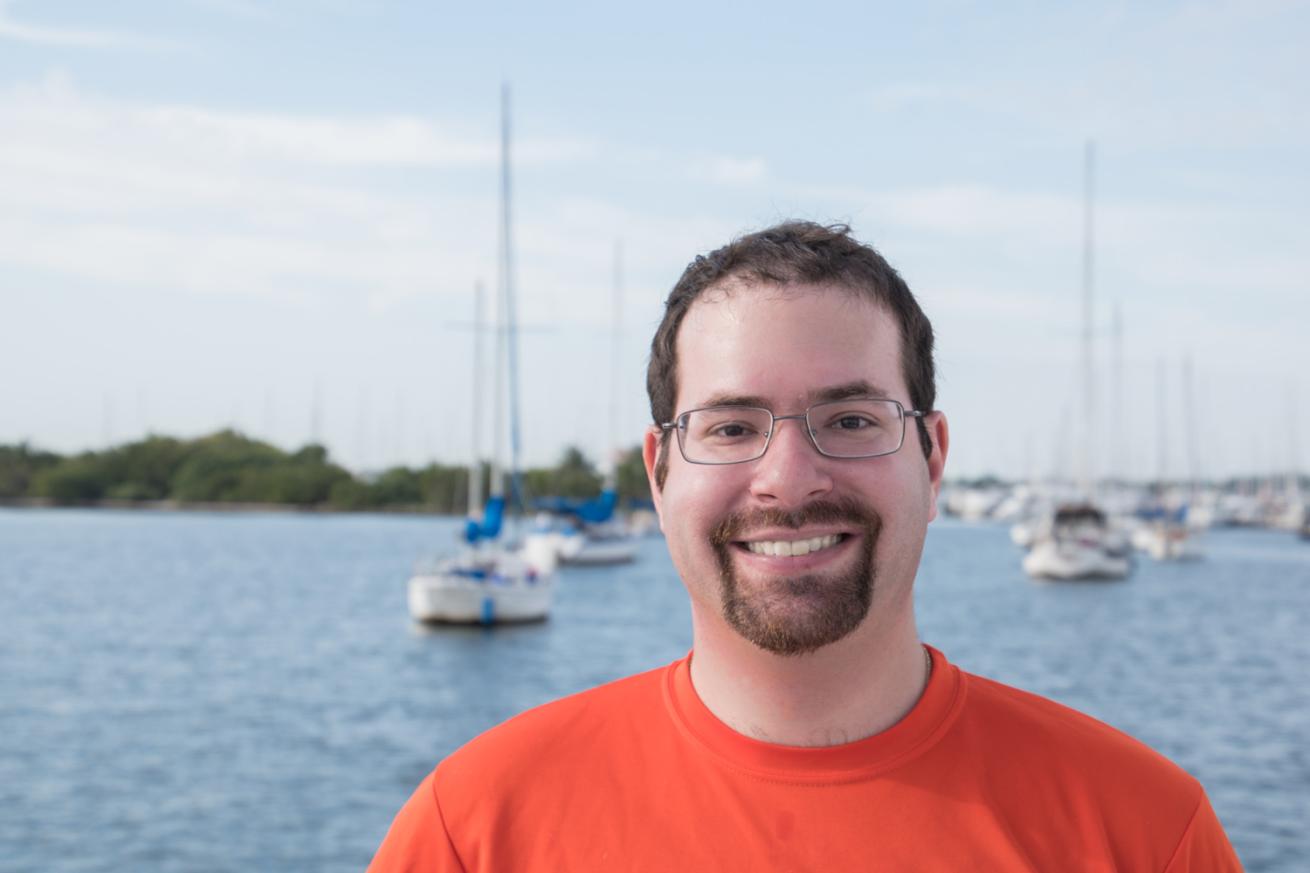
Josh LibermanDr. David Shiffman
However, with lots of conflicting, misleading or just plain wrong information out there about environmental problems and how you can help solve them, it can be hard to know how to help. In some cases, well-intentioned but misinformed activists not only fail to help solve a problem, but can actually make the problem worse, or harder to solve! Put simply, if we’re going to fix the massive problems facing the ocean, the details matter, and those details can be confusing! In this monthly column, my goal is to teach you the true scientific facts behind some of the most pressing threats facing the ocean and the solutions experts believe will help solve them. I will also try to dispel common misconceptions about these threats and their solutions.
The views expressed in this article are those of David Shiffman, and not necessarily the views of Sport Diver or Scuba Diving magazines.

